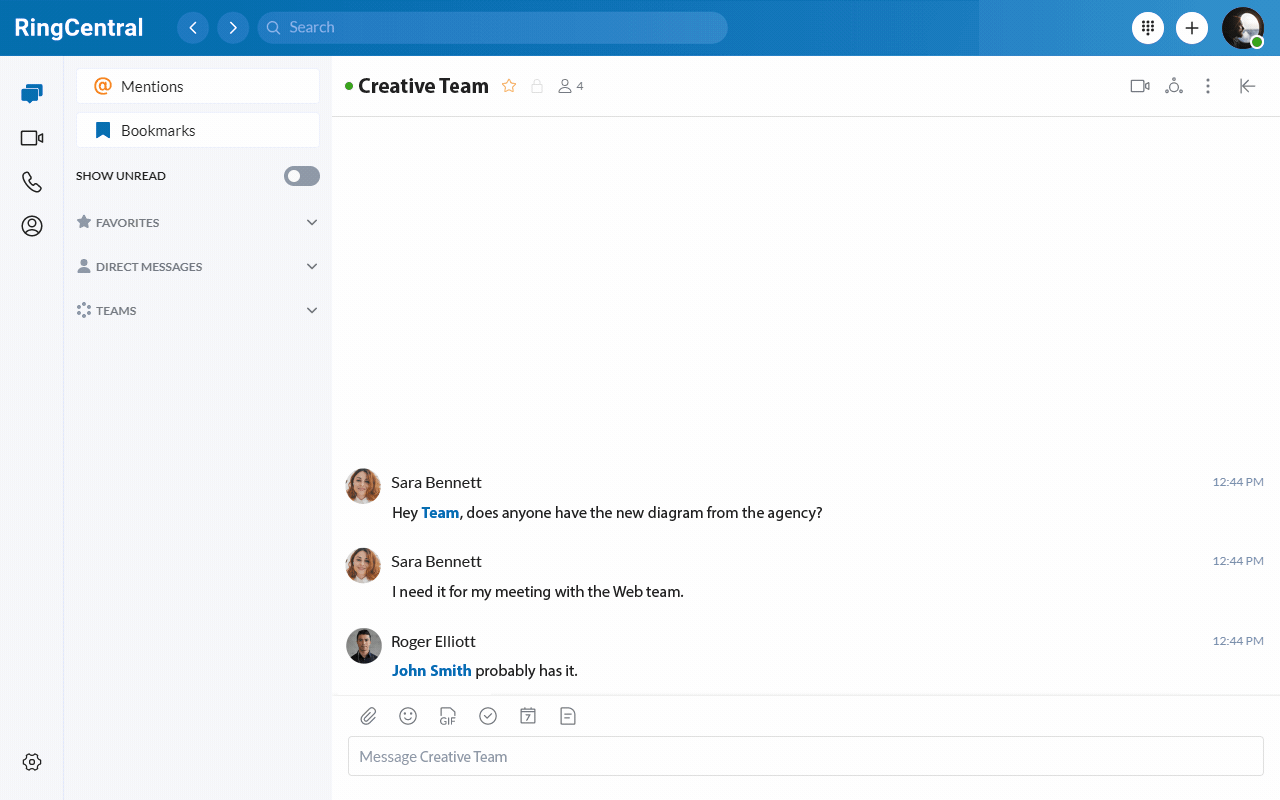Small business burnout can often feel like it’s right around the corner. On any given day, you might be managing problems and resolving issues, working on the next big thing, or putting out fires — and there must be something special about those last two points because they seem to happen every week!
How can one person possibly do it all–and do it well enough to make the business successful and sustainable? Sometimes they can’t, which then leads to business owner burnout. It’s important to identify the signs of burnout early, so you don’t go too far down the rabbit hole before seeking solutions.
Today, we’ll cover:
- The major signs of burnout
- How burnout affects your business
- How to avoid burnout in your small business
🔥 Burnout is a real thing. In fact, 39% of workers say they feel more lonely and isolated at work. Learn more by accessing the 2022 State of Human Connections report.
The major signs of burnout
Small business burnout is a real thing, and you need to recognize the symptoms before it leads to bigger problems.
Many small business owners hit the wall from lack of sleep, energy, or motivation. They lose interest in their business and everything they once loved about running it. Common signs of burnout include:
- Feeling exhausted
- Feeling overwhelmed
- Becoming easily frustrated
- Feeling unmotivated and unable to perform your usual duties
Exhausted and overwhelmed
Business owners may come to view their work as an all-consuming, thankless task that needs to be done—but not by them. They become resentful and bitter that they’re the only ones working practically around the clock, while employees are more concerned about checking personal emails or getting perfect abs for summer.
Eventually, business owners become so tired and burned out that they no longer care about how the work is done—or if it’s even getting done at all.
Trying to avoid burnout by working more hours only makes the situation worse because you’re too exhausted to be productive. You can’t run a successful business that way, and eventually, you’ll crash and burn — leaving yourself broke, broken, and burned out.
Before you’ve reached this point, it’s time to rethink the situation and make some changes.
Frustrated and cynical
Burnout is insidious, and the longer you ignore your business’s problems, the more you will exacerbate them.
Pretty soon, you’re not just exhausted and overwhelmed — you’re also frustrated and cynical. If left untreated, it’s a combination that can quickly turn into a death spiral for your small business.
The frustration comes from lack of progress and constantly feeling like you’re putting out fires. Business owners become highly impatient with employees who don’t deliver or get sidetracked by other tasks that need to get done.
Cynicism sets in when business owners start believing they can’t make any progress, so why even try? They think, “My competitors are crushing me because they’re bigger and better funded.” Or, “I should give up now because I’ll never break into this market. It’s too crowded.”
When business owners adopt these defeatist attitudes, they invite failure into the relationship.
Suffering performance
Burnout trickles down, especially in a small business. If you’re experiencing burnout, it’s only a matter of time before it impacts your whole team’s performance. And when the team’s performance suffers, the business numbers come next.
Employees are unhappy because they feel overworked and under-appreciated. Eventually, turnover starts to increase as employees look for greener pastures where they can pursue their passions without feeling overburdened. Customers won’t be happy because your service or product quality will suffer due to poor morale or motivation.
Let’s dig into this topic a little deeper.
How burnout can affect your small business
If you think your own personal burnout doesn’t spill over into other areas of your business, you might want to look a little more closely. If the boss is burnt out, leadership suffers, and that can lead to a lot of systemic issues.
Common impacts of burnout on a small business include:
- Decreased productivity
- An increase in miscommunication and misunderstandings
- Struggles with prioritization
- Poor decision-making
- More “dropped balls” and stalled projects
There are also some more serious impacts of burnout that are harder to come back from, like:
- Mistreating employees
- Mistreating customers
- A toxic workplace atmosphere
- A negative public image
These side effects of burnout can lead to decreased sales, customer loss, and employee turnover.

How to avoid (or come back from) business burnout
The antidote, however, is pretty simple. You need to stop and re-evaluate your situation. A fresh perspective can help you identify why things are going wrong and what might be causing it. Then, you can start coming up with solutions.
You may be trying to do everything by yourself, but the truth is that you can’t afford it. Business owners need to recognize when their burnout has set in and realize they need help — whether from employees, outside consultants, or freelancer outsourcing — to sustain business growth.
Here are some top tips for how to deal with burnout and get back your business groove:
1. Analyze your situation
Make a thorough analysis of your current situation and get recommendations for what you can do to get back on track. You can’t do everything on your own. You’ll need to sit down with your teammates and identify the biggest problems that need to be addressed, then develop strategies for fixing these problems.
If it’s more stress than burnout, prioritize tasks according to their importance. Each team member should share their thoughts on what’s getting in the way of their productivity and what they need from you to prioritize tasks effectively.
As a business owner, it’s your job to remove as many distractions as possible and give your employees the tools they need to be successful.
2. Streamline your life with the cloud
Phone calls, emails, video conferences, instant messages… a small business needs a lot of communication channels to stay afloat. But managing all of them can really take a toll on your time and energy.
That’s where a cloud communications app for your business can really help. The best ones bring these different channels together so you can manage everything from one easy-to-use app you can access at work or from anywhere on your mobile device.
For example, RingCentral puts your business phone system in the same app as your video conferencing and team messaging, so you can save time and work smarter. Plus, the app is easy enough for anyone to navigate:

By using a cloud-based system, you’ll have the freedom to access your business phone system anytime, anywhere with ease.
Integrations are another way the cloud can help you streamline your workday. RingCentral integrates with all kinds of business apps you might already be using, like:
- Salesforce
- Quickbooks
- Gmail
- iCalendar
- GoToMeeting
- Zapier
Plus, with team messaging, you can eliminate unnecessary meetings and dreaded email chains where productivity goes to die. It puts all of your communications in one place so employees aren’t jumping from one app to another all day. You can even share files, set tasks, and make events!

3. Prioritize work-life harmony
We all need to recharge our batteries from time to time, and it’s imperative when you’re trying to avoid burnout. Take rest breaks when you feel overwhelmed by frustration or fatigue.
Set the alarm on your phone every hour, and when it goes off, take five minutes for yourself before getting back to work. You’ll come back to the office feeling refreshed and more positive.
You must keep up with self-care when you’re stressed or burned out. Eat well, exercise, get enough sleep, and maintain your social life outside of work. Your body can’t take an endless loop of stress day after day without eventually giving in — and your business will suffer as a result.
4. Delegate tasks
You can’t do everything yourself, and those who try end up burning out quickly. Try delegating tasks to people you trust — whether it’s your employees, freelancers, or a VA (virtual assistant) like those available through Upwork.
Create a to-do list of daily, weekly, and monthly tasks that need to be completed within your business, then give this list to your VA or team members and ask them to pick which task they want to work on first.
By delegating responsibilities, you’ll be giving everyone on your team a sense of ownership and autonomy and making it clear that you trust them to do their job well.
5. Learn to say no
For a small business owner who is used to taking advantage of every opportunity, this can be the hardest lesson to learn. But it would be best if you knew how to say no — especially when you’re feeling burnt out.
You can’t be everywhere at once, even if it seems that way. You’ll have a better chance of avoiding burnout if you stick to what your company does best and trust that the rest will fall into place as needed.
It might seem like you’re the only option for a client or partner at times, but that’s never true. You need to do some research and find other businesses that could fulfill your client’s requirements as well as, if not better than, you could.
Don’t feel obligated to take on work that doesn’t align with your vision or goals. You have obligations to meet, but you’ll accomplish much more by saying “yes” only when you’re confident that you can handle the work.
6. Celebrate achievements
It’s easy to get caught up in the grind of everyday life and forget why you started your business in the first place. Remembering what made you passionate about your work will help you refocus on your goals and stay positive during difficult times.
When something good happens — a product launch, a new client, a new essential employee — celebrate it as a team. You’ll feel the positive effects of the encouragement, and you’ll be more likely to keep those good vibes going as you look for new opportunities.
Burnt out? Bounce back!
You can’t run a business effectively if you’re burnt out. Reclaim your mojo by taking steps today to head off burnout at the pass. Choose RingCentral as your partner in communications to streamline your communication and collaboration processes, motivate your team to be more productive, and build positive morale company-wide. See our small business solutions to get started.
Originally published Mar 24, 2022, updated Sep 18, 2022





